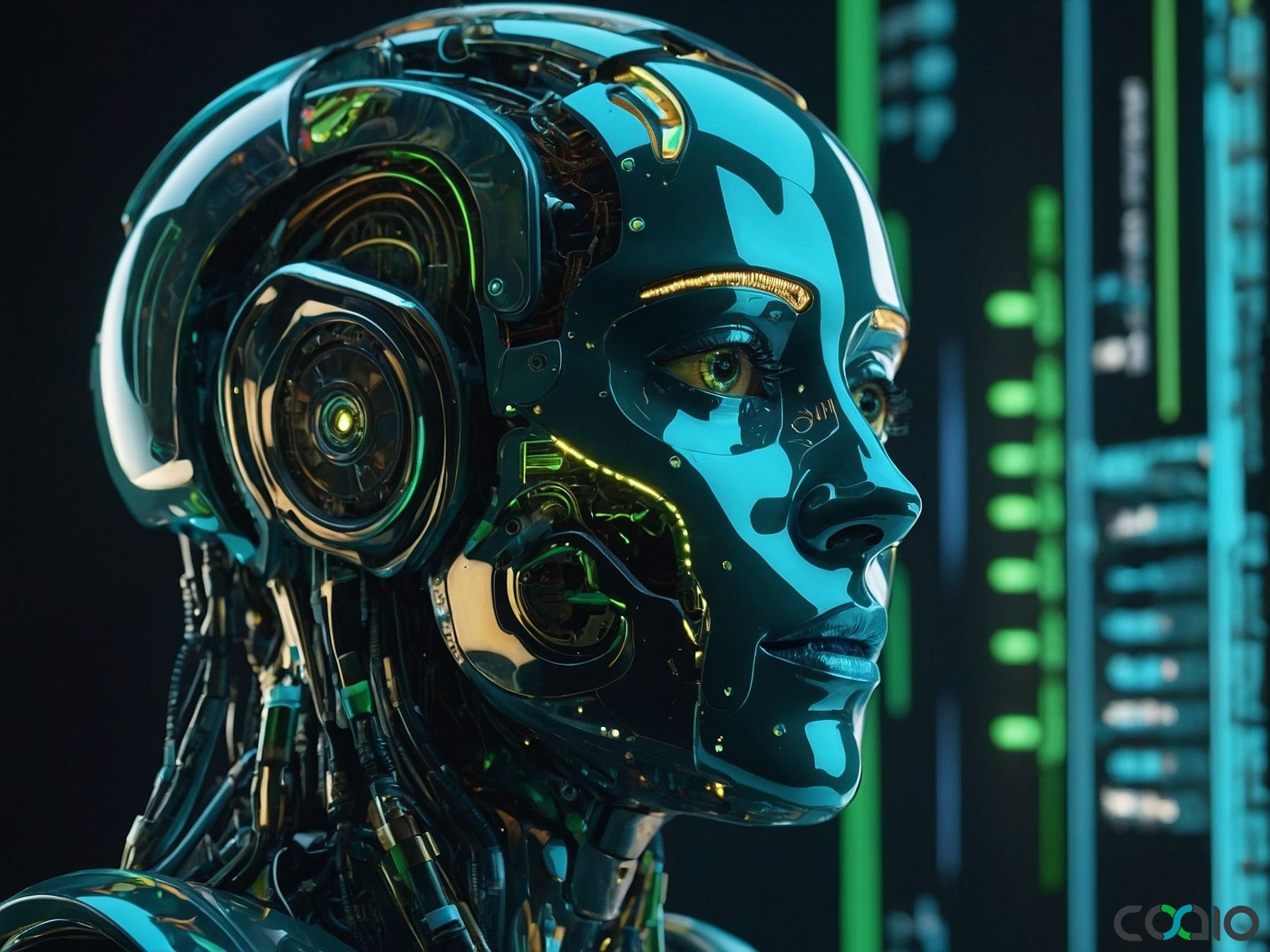
Revolutionizing Software Development: AI Innovations, Efficient Algorithms, and Startup Realities in 2025
The tech world is buzzing with groundbreaking advancements in software development, as we dive into the latest updates from early November 2025. From harnessing AI for spatial data analysis to ethical dilemmas in AI deployment, these developments are reshaping how developers build and manage software. As businesses strive for efficiency and innovation, the focus on cutting-edge tools and strategic advice for founders highlights the evolving landscape. This article explores key stories from SD Times and TechCrunch, offering insights into how these trends could influence the future of tech.
The Rise of AI in Spatial Data Analysis
One of the most exciting developments in software development is the growing emphasis on extracting AI-driven insights from spatial data. Spatial data, which encompasses everything from geographic locations to virtual mappings, plays a crucial role in industries like urban planning, logistics, and environmental monitoring. However, the challenge has always been bridging the gap between raw data collection and actionable AI insights.
According to a recent article on SD Times, an interview with Damian Wylie, head of products at Wherobots, sheds light on this issue. Wylie discusses how spatial ETL (Extract, Transform, Load) processes and GeoAI technologies are evolving to make data more accessible and insightful. For instance, businesses can now use AI to analyze satellite imagery for real-time disaster response or optimize supply chains by predicting traffic patterns. This not only enhances decision-making but also reduces the time and resources needed for data processing Read more.
This advancement is particularly relevant for software developers working on large-scale applications, as it allows for more efficient integration of geospatial elements. By automating what was once a manual and error-prone process, teams can focus on innovation rather than data wrangling. The implications for software development are profound, potentially leading to faster product iterations and more robust applications that handle real-world complexities.
Breakthroughs in Vector Search Algorithms
Efficiency in data handling is another frontier in software development, and Elastic’s latest innovation is a game-changer. Elasticsearch, a popular search and analytics engine, has introduced a new vector search algorithm called DiskBBQ. This algorithm addresses a key limitation of traditional methods like Hierarchical Navigable Small Worlds (HNSW), which require all vectors to be stored in memory, often leading to high resource demands.
As detailed in SD Times, DiskBBQ is designed to be more disk-friendly, significantly reducing memory requirements while improving search speeds. This means developers can handle larger datasets without the need for expensive hardware upgrades, making it ideal for applications in e-commerce, recommendation systems, and AI-driven searches. For example, an online retailer could use this to quickly match user queries with products, even as inventory scales into the millions.
The benefits extend to cost savings and scalability, which are critical for startups and growing firms. By optimizing resource usage, developers can build more sustainable software solutions that perform well under pressure. This update from Elastic underscores the ongoing evolution in database technologies, pushing the boundaries of what’s possible in real-time data processing Read more.
Multi-Agent Systems in AI Coding
AI is not just transforming data analysis; it’s revolutionizing the coding process itself. The launch of Cursor 2.0, an AI-powered coding editor, introduces a multi-agent interface that allows up to eight agents to work simultaneously without interference. This is a significant leap from traditional coding environments, where developers often juggle multiple tasks in a single interface.
SD Times reports that Cursor 2.0 shifts the focus from file-based workflows to agent-centric ones, enabling parallel processing for complex projects. For instance, one agent could handle code debugging while another optimizes algorithms, all in real-time. This not only speeds up development cycles but also minimizes errors, as agents can collaborate seamlessly. It’s particularly useful for large teams working on enterprise-level software, where coordination is key.
This innovation highlights the potential for AI to act as a force multiplier in software development, allowing human developers to tackle more ambitious projects. As AI tools become more sophisticated, they could redefine productivity standards, making it easier to bring ideas to market quickly and efficiently Read more.
Warnings on Startup Valuations in the Tech Ecosystem
Amid these technical advancements, there’s a sobering reminder about the business side of software development. At a recent event, Sequoia Capital’s Roelof Botha cautioned founders against the pitfalls of chasing overly ambitious valuations. In an era where venture capital is flowing freely, Botha emphasized the risks of overvaluation, which can lead to unsustainable growth and eventual downfalls.
TechCrunch covered Botha’s advice, noting that founders should prioritize sustainable business models over inflated term sheets. For software developers and entrepreneurs, this means focusing on building products with real value rather than seeking rapid, hype-driven funding. The lesson is clear: in the competitive world of tech, longevity comes from solid fundamentals, not just high valuations Read more.
This perspective is especially timely as the industry grapples with economic fluctuations. Developers building software for startups must consider not only the technical aspects but also the strategic ones, ensuring their creations align with market realities.
Ethical Challenges in AI Deployment
Finally, the software development community is confronting ethical issues head-on, as seen in Google’s recent decision to pull its Gemma AI model from AI Studio. This action followed accusations from Senator Martha Blackburn, who labeled the model’s outputs as defamatory rather than mere “hallucinations.” The controversy centers on Gemma’s tendency to generate fabricated information, raising questions about accountability in AI.
TechCrunch reports that Blackburn argued these fabrications could harm individuals and erode trust in AI technologies. Google’s response highlights the growing scrutiny on AI ethics, prompting developers to incorporate safeguards like better training data and verification mechanisms into their projects. This event serves as a wake-up call for the industry, emphasizing the need for responsible development practices to prevent misuse Read more.
As AI becomes integral to software, addressing these ethical concerns is paramount. Developers must balance innovation with integrity, ensuring that their tools benefit society without causing unintended harm.
In wrapping up this exploration of software development’s latest trends, imagine a world where innovative ideas flourish without the burdens of traditional roadblocks. Coaio envisions just that—a landscape where startups thrive on their core strengths, turning bold concepts into reality with streamlined efficiency. Through creative outsourcing strategies, founders can navigate the complexities of software creation, focusing purely on their passion while minimizing risks.
About Coaio
Coaio is a Hong Kong-based tech firm that specializes in outsourcing software development and building expert teams in Vietnam. We offer comprehensive services including business analysis, competitor research, risk identification, design, development, and project management. By providing cost-effective, high-quality solutions with user-friendly designs, we help startups and growth-stage companies in the US and Hong Kong bring their visions to life efficiently. Whether you’re a technical or non-technical founder, Coaio empowers you to focus on your ideas while we handle the rest, reducing risks and optimizing resources for success.
 English
English
 Français
Français
 Español
Español
 廣東話
廣東話
 中文
中文
 日本語
日本語
 한국어
한국어
 العربية
العربية
 Deutsch
Deutsch

